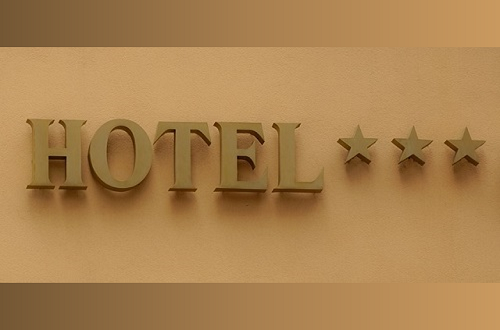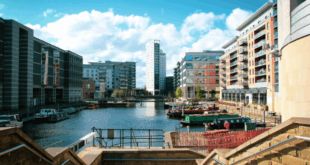Search for a hotel online using Google and you’re likely to get a response from various booking websites, all with a star rating or similar measurement. The score should be useful, but is it? Having recently done some quick desk research, I was surprised how much the scores varied between sites sometimes varying by two or more stars.
UK Hotel Ratings
Prior to websites like Tripadvisor The AA and the RAC were the people to turn to. Both motoring organisations rated hotels using a star system. Their methods were consistent, but not perfect, being more an indication of features than a measure of customer service. The RAC no longer offers this service. The AA continues and works with the UK’s various tourist boards to ensure consistency. Click on this link for details of AA Star Ratings.
AA Hotel Hotel Ratings
(Follow the link to their website for guest house and restaurant ratings)
1 star: Courteous staff provide an informal yet competent service. All rooms are ensuite or have private facilities. A designated eating area serves breakfast daily and dinner most evenings.
2 stars: + A restaurant or dining room serves breakfast daily and dinner most evenings.
3 stars: + Staff are smartly and professionally presented. The restaurant or dining room is open to residents and non-residents.
4 stars: + Professional, uniformed staff respond to your needs or requests. Well-appointed public areas. The restaurant or dining room is open to residents and non-residents. Lunch is available in a designated eating area.
5 stars: + Luxurious accommodation and public areas. A range of extra facilities and a multilingual service available. Guests are greeted at the hotel entrance. High quality menu and wine list.
Red or gold stars indicate standards beyond the star ratings. Ratings are also applied to guest houses and self-catering accomodations. The AA’s Rosette scheme for rating restaurants is a good indication of what to expect. Overall, the AA and tourist board ratings are a reliable indication of what to expect.
International Hotel Ratings
Despite attempts over the years, there is no agreed standard. Some countries even use seven instead of the more common five stars. Whilst top rated hotels are likely to be good wherever you travel, what you get for three and four stars can vary.
In Europe, thanks to the Hotelstars Union, there is consistency across; Austria, Belgium, Czech Republic, Denmark, Estonia, Germany, Greece, Hungary, Latvia, Liechtenstein, Lithuania, Luxembourg, Malta, Netherlands, Slovenia, Sweden and Switzerland. France meanwhile use a national system as in the UK. Italy also works independently, confusingly also with regional variations on star levels. I’ve found standards in Europe vary widely.
The American Automobile Association AAA, rate hotels nationally, awarding one to five diamonds instead of stars. Australia also has a national 5 star rated system.
In countries with no national schemes, hotels can invent their own, so beware. Checking with local official tourist boards will often give you information.
Booking site hotel ratings
As with most review websites, where there are more reviews, the score is likely to be more accurate. Although the managers of these sites are working hard to filter out false praise or grudge reviews, some will filter through. If the number of reviews is low, they can influence scores up or down. It’s wise to read the actual reviews rather than rely on the star ratings alone, you may find some comments interesting.
Other Organisations and Hotel Guides
The Leading Hotels of the World is a long established organisation listing over 350 of the world’s top luxury hotels, worth looking at for that very special holiday of a lifetime. The Forbes Travel Guide claims to be the only independant global rating provider for luxury hotels. The Rough Guide series include reviews and claim impartiality.
There are numerous guides on offer, some quite expensive to buy. The challenge is to filter what are genuine guides and what are effectively a book of adverts, paid for and therefore not subjective. One check to try is to see if other good hotels are listed in an area.
Other Tips
Through the internet, we have access to so much information. Using Google Street View for example, we can look at the outside of a hotel and it’s immediate surroundings. We can look to see if it really is centrally located or in a less desirable backwater. Through simple searches such as “Hotel XXX” you may find further useful information. Also check on services, menus and parking etc. before you book.
Personal recommendations or asking for thoughts on Social Media are other options. If you are travelling somewhere unfamiliar, it’s worth doing some homework first.
 Travellers Club The Travellers Club, a free to join on-line club for everyone who loves to travel.
Travellers Club The Travellers Club, a free to join on-line club for everyone who loves to travel.









